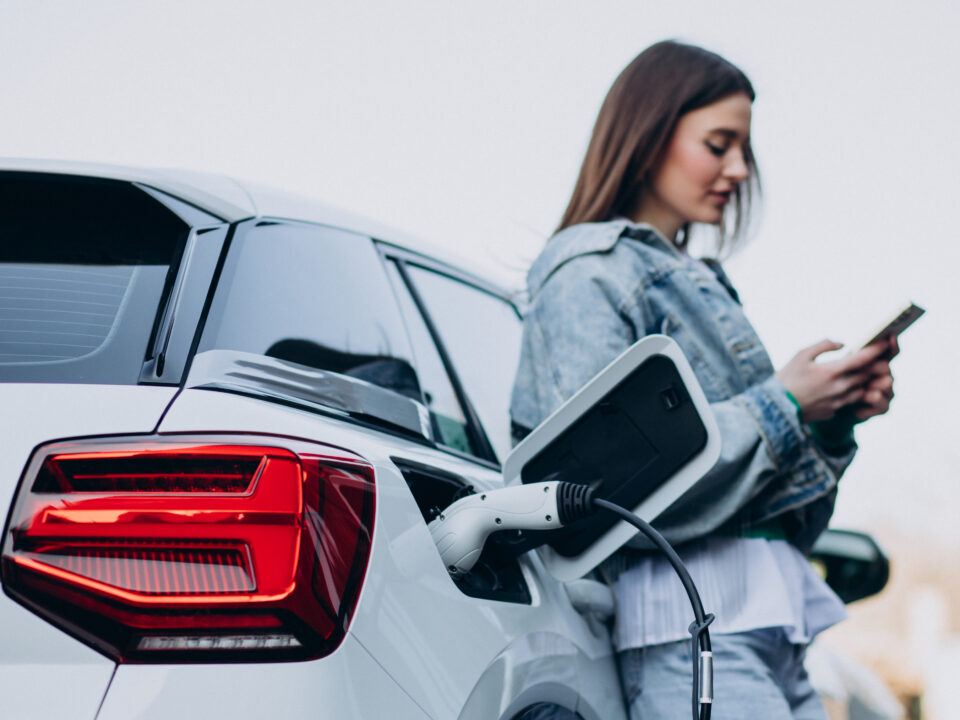
How to Prepare Your Business for an EICR Inspection
August 30, 2024
Cann Electrical: Wired for Excellence in Electrical Services
September 19, 2024What You Need to Know About EV Charger Installations
As more people switch to electric vehicles (EVs), the need for EV chargers at homes and businesses is growing quickly, with over 1.1 million electric cars already on UK roads as of June this year. If you’re considering making the switch, we’re here to help ensure you have the information you need to understand the process and available options.
Whether you’re looking to install a charger at home or at your business, we break down everything you need to know in this blog.
Choosing the Right Charger
The first step in installing an EV charger is choosing the right one for your needs. EV chargers come in three levels:
- Mode 2: This connection utilises a standard household socket outlet, not exceeding 32 amps, 250V AC single phase, or 480V AC three phase on the supply side. The charging cable includes an in-cable control box with an incorporated RCD. This mode is suitable if you drive short distances and have ample time to charge overnight.
- Mode 3: This connection utilises dedicated EVSE (electric vehicle supply equipment) at an EV charge point. These commonly come as 7kW units, providing up to 32 amps of charging capability, and are more suitable for consumers who require a faster charge rate. They are also available in three-phase versions and can be either tethered or untethered.
- Mode 4 (also known as DC Fast Chargers): These are typically found in public spaces and charge vehicles incredibly quickly. They’re not typically installed at home due to their high cost and power requirements, but businesses with frequent EV traffic may consider them.
What to Consider for Home Installations
If you’re planning to install an EV charger at home, here are a few things to keep in mind:
- Electrical Capacity: You’ll need to ensure that your home’s electrical system can handle the increased load. A competent electrician can assess your electrical panel and determine if upgrades are necessary.
- Location: You’ll want to install your charger in a convenient spot, usually in the garage or driveway, where you park your car.
- Permits: Depending on your local regulations, you may need a permit for the installation. Working with a competent electrician ensures that your installation meets all safety codes and regulations.
What to Consider for Business Installations
For businesses looking to install EV chargers, there are some additional factors to consider:
- Customer Demand: Depending on your business type, you might offer EV charging as a customer service perk or as a way to attract eco-conscious customers. Knowing your audience will help determine how many chargers you need and which types are most suitable.
- Charger Visibility: Placing chargers in visible, easy-to-access locations encourages their use. Clear signage is also essential for helping drivers locate your charging stations.
- Future-Proofing: With more EVs hitting the roads every day, it’s worth thinking about future demand. Installing multiple chargers or choosing a system that’s easily expandable can save you time and money down the road.
If you have any pressing questions about EV chargers, check out our previous blog where we answer some FAQs on how EV charging can benefit your business.
What is Involved in the EV Installation Process?
The installation process for both home and business EV chargers is fairly straightforward, but it’s essential to hire a licensed electrician for the job. Here’s what you can generally expect:
- Site Assessment: The electrician will evaluate your electrical system, determine the best installation location, and identify any potential challenges.
- Electrical Upgrades (if needed): If your home or business’s electrical panel needs an upgrade to handle the extra load, this step will be handled first.
- Charger Installation: The electrician will install the charger, including any wiring and hardware necessary to connect it to your electrical system.
- Testing: After installation, the electrician will test the charger to ensure it’s working correctly and safely.
Once your EV charger is installed, it’s essential to keep it well-maintained. Most chargers don’t require a lot of upkeep, but it’s a good idea to check for software updates, clean the charging cable and connector regularly, and ensure the charger’s components are in good condition. If any issues arise, reach out to an electrician to inspect and repair the charger.
Why Choose Cann Electrical?
At Cann Electrical, we’re committed to supporting the UK’s shift to greener transport by 2030. As an OZEV-approved installer, we can help you save on installation costs by claiming government grants through the Workplace Charging Scheme.
Our team ensures a safe, high-quality installation whether it’s for your home or business. From initial assessments to ongoing support, we make the transition to electric vehicles easy and hassle-free.
If you’re ready to make the switch to electric or expand your business’s charging capabilities, contact us today for a free no-obligation quote.


